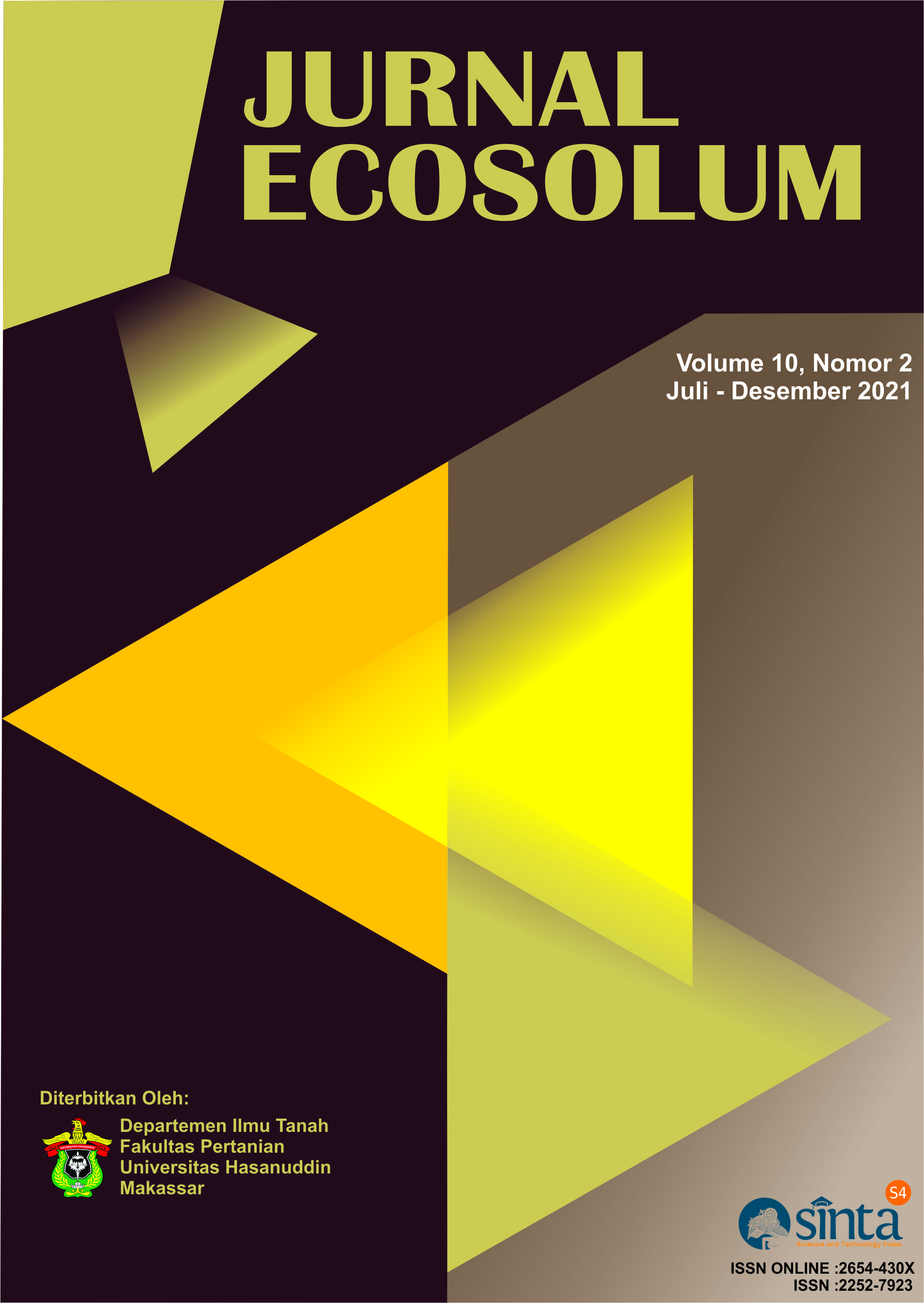SOIL FERTILITY MAPPING OF CORN PLANT BASED ON MINERALS IN JENEPONTO REGENCY
DOI:
https://doi.org/10.20956/ecosolum.v10i2.18682Keywords:
Jeneponto, soil, mineral, corn, mapAbstract
One of the efforts to optimize the growth and production of corn is by potential mapping areas for its development. Minerals are the main elements that have an important role in soil formation and determine the physical and chemical properties of the soil. Minerals are one of the essential indicators related to soil weathering, so the presence or absence of minerals in the soil can indicate how soil formation occurs, especially soil fertility on the land. Jeneponto is one of the corn-producing districts in South Sulawesi, so it is imperative to map its soil fertility based on soil mineral content to be sustainable. The research method used purposive sampling on cornfields in Jeneponto Regency. Soil mineral analysis was carried out using a thin section method, while the analysis of the physical and chemical properties of the soil, including pH, C-organic, and soil texture, followed the BPT procedure; the map was generated using the weighting method and processed by kriging. The results showed that the pH value of the soil was in the slightly acidic to neutral range; C-organic soil had low status in the eastern area and moderate status in the western area of the study site. The soil texture is dominated by clay, silty clay, and silty clay loam. The dominant easily weathered minerals are calcite, pyroxene, and hornblende. Soil fertility status based on nutrient-carrying minerals is in the moderate to the good range with a value of 55-75%. The potential for developing corn plants with priority status is in the Districts of West Bangkala and Bangkala. The second priority is in the Districts of Tamalatea, Batang, Kelara, Rumbia, and parts of Bontoramba, Tarowang, and Arungkeke
Downloads
Published
How to Cite
Issue
Section
License

This work is licensed under a Creative Commons Attribution-NonCommercial 4.0 International License.


